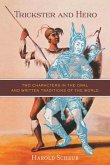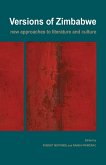While in most African cultures and beliefs mythical characters are almost exclusively male figures, in the work of novelist and poet Jean-Marie Adiaffi (from Côte d'Ivoire, West Africa), female figures stand and act as preeminent mythical characters who attain divine and transcendent proportions at times. Whether they appear as mythical characters, or whether they are ordinary characters with "mythical dispositions," female figures are portrayed as being part of some abstruse reality, as sharing some of the "obscure" attributes known to be the prerogative of transcendent forces. They stand as central figures in legends, folktales, and allegories, and act as key agents in certain ritual performances, which associates them with the realm of the unknown, thus transcending the confines of human condition, stature, and faculties. This innovative vision of the female figure is explored by this book entitled Faces of Women and the Aesthetics of Myth in Jean-Marie Adiaffi's Work. The study examines the ways in which myth is used in Adiaffi's work as a central aesthetic device. Then, it analyzes various facets and features of the female figure and how she is celebrated by myth as a divine and sacred entity endowed with the task of assuring the soundness and plenitude of human destiny. In accordance with the perspective set by Adiaffi, the work unveils a new vision that glorifies the female figure by conferring mythical attributes upon her, which amounts to viewing her as part of the foundations of the communal existence and destiny. Ultimately, the study portrays the female figure as the absolute principle through which contemporary Africa ought to articulate and accomplish her quest for identity and spiritual rehabilitation made necessary by the colonial alienation and disruption.
Hinweis: Dieser Artikel kann nur an eine deutsche Lieferadresse ausgeliefert werden.
Hinweis: Dieser Artikel kann nur an eine deutsche Lieferadresse ausgeliefert werden.








